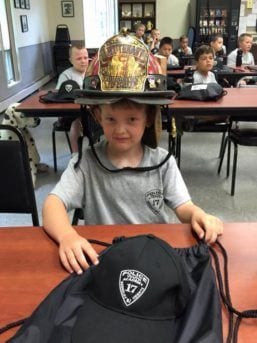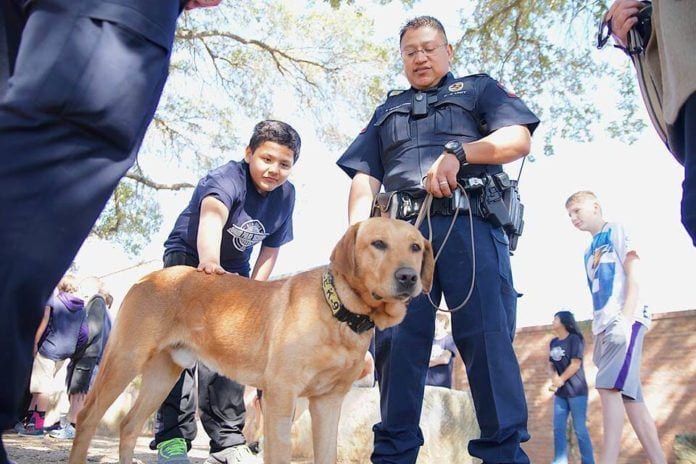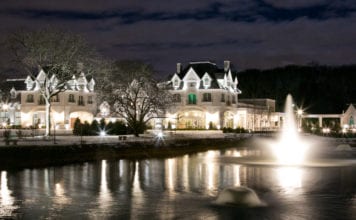Ask a classroom full of children what they’d like to be when they grow up and it’s likely that “Police Officer” will be among the replies ringing out across the room. And it’s no wonder, as law enforcement is one of the professions kids often gravitate towards.
There is so much that goes into being a police officer, and the only way for children to get a real taste of what it’s like is to experience it first-hand. New Jersey has tons of incredible and in-depth junior police academy programs for kids and young adults this summer so they can experience what it’s really like to patrol the streets of the Garden State.
Here are five real-life lessons that kids will learn at a junior police academy:
[bibblio style=”bib–row-3 bib–hover bib–white-label bib–font-arial bib–default bib–size-16 bib–shine” query_string_params=”eyJ1dG1fc291cmNlIjoiQmliYmxpbyIsInV0bV9tZWRpdW0iOiJNb2R1bGUiLCJ1dG1fY2FtcGFpZ24iOiJSZWNvbW1lbmRhdGlvbnMifQ==” recommendation_type=”optimised”]
To Be Respectful
One of the most important aspects of being a police officer is having respect for other people; no matter their relationship to you. At junior police academies, children are taught to work as a team and in doing so, to treat one another impartially at all times. Their instructors will also keep them in line as if they’re truly training to be police officers and respect is required first and foremost during these interactions.
To Be a Good Leader
 Junior police academies “mirror as much of the academy” as possible, explains Patrolman Craig Hoover of the East Brunswick Police Department. This includes leadership training, such as acting as a squad leader for certain activities, so that trainees get a feel for being in charge of others and doing so fairly. In describing the biggest takeaways from the program Officer Hoover says, “predominantly teamwork, leadership and a sense of accomplishment.” These lessons are sure to give children the confidence to move forward knowing they can accomplish great things.
Junior police academies “mirror as much of the academy” as possible, explains Patrolman Craig Hoover of the East Brunswick Police Department. This includes leadership training, such as acting as a squad leader for certain activities, so that trainees get a feel for being in charge of others and doing so fairly. In describing the biggest takeaways from the program Officer Hoover says, “predominantly teamwork, leadership and a sense of accomplishment.” These lessons are sure to give children the confidence to move forward knowing they can accomplish great things.
To Be Comfortable with Law Enforcement Officers
Another important lesson to learn at junior police academy is that there is no reason to fear police officers. A lot of kids view law enforcement officials as intimidating but this isn’t the relationship that should exist. According to Officer Hoover, “The only other thing I can add is kids, especially teens, are leery of the police and this bridges that gap. You can say hi and approach a police officer without being in trouble. This is just the job we chose.”
To Be Physically Fit
They also explore the importance of physical fitness at junior police academies. They teach these lessons through physical tasks, because perseverance and discipline are the basic tenors of joining the police force. The junior academies also take advantage of the opportunity to use physical tasks to promote mental growth. One example that Officer Hoover speaks of is a trip to an indoor rock-climbing facility. “We had kids that got over their fears of heights and climbing through encouragement from others,” Hoover said.
To Be a Good Citizen
In the media-driven world we live in today, kids often idolize the wrong types of people. It’s important to police academy leaders that children learn to differentiate between false heroes and good role models. “We talk about what it is to be a good citizen and role model, and steer away from rappers and athletes on steroids,” Officer Hoover explains. Officers make every effort to ensure kids leave the program knowing what it means to be a good role model.
Hero (Top) Feature Image: © Junior Police Academy / Facebook
Additional Images (in order) Courtesy:
Berkeley Heights Police Youth Academy / Facebook











